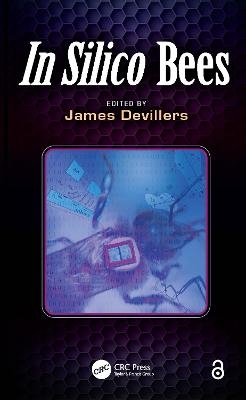
In Silico Bees
CRC Press (Verlag)
978-1-138-37470-6 (ISBN)
Modeling approaches are useful to simulate the behavior of whole population dynamics as well as to focus on important phenomena detrimental to bee-life history traits. They also allow simulation of how a disease or a pesticide can impact the survival and growth of a bee population. In Silico Bees provides a collection of computational methods to those primarily interested in the study of the ecology, ethology, and ecotoxicology of bees. The book presents different cases studies to enable readers to understand the significance and also the limitations of models in theoretical and applied bee research.
The text covers modeling of honey bee society organization, infectious diseases in colonies, pesticide toxicity, chemical contamination of the hive, and more. Written by an international team of scientists, this book is of primary interest to those whose research or professional activity is directly concerned with the study of bees. It is also intended to provide graduate and post-graduate students with a clear and accessible text covering the main types of modeling approaches that can be used in terrestrial ecology and ecotoxicology.
James Devillers has authored/edited 15 books and published more than 200 peer-reviewed papers and book chapters in QSAR and (eco)toxicology modeling. He is editor-in-chief of the journal SAR and QSAR in Environmental Research (Taylor & Francis) and editor of the series of books QSAR in Environmental and Health Sciences (CRC Press). James Devillers is also a member of the editorial boards of Ecological Modelling (Elsevier), Xenobiotica (Taylor & Francis), Current Bioactive Compounds (Bentham Science), and Toxics (MDPI AG).
Automatic Systems for Capturing the Normal and Abnormal Behaviors of Honey Bees. Computational Modeling of Organization in Honey Bee Societies Based on Adaptive Role Allocation. Illustrating the Contrasting Roles of Self-Organization in Biological Systems with Two Case Histories of Collective Decision Making in the Honey Bee. Models for the Recruitment and Allocation of Honey Bee Foragers. Infectious Disease Modeling for Honey Bee Colonies. Honey Bee Ecology from an Urban Landscape Perspective: The Spatial Ecology of Feral Honey Bees. QSAR Modeling of Pesticide Toxicity to Bees. Mathematical Models for the Comprehension of Chemical Contamination into the Hive. Agent-Based Modeling of the Long-Term Effects of Pyriproxyfen on Honey Bee Population. Simulation of Solitary (non-Apis) Bees Competing for Pollen. Estimating the Potential Range Expansion and Environmental Impact of the Invasive Bee-Hawking Hornet, Vespa velutina nigrithorax. Index.
| Erscheinungsdatum | 21.01.2019 |
|---|---|
| Zusatzinfo | 17 Tables, black and white; 11 Illustrations, color; 88 Illustrations, black and white |
| Verlagsort | London |
| Sprache | englisch |
| Maße | 156 x 234 mm |
| Gewicht | 453 g |
| Themenwelt | Naturwissenschaften ► Biologie ► Botanik |
| Naturwissenschaften ► Biologie ► Ökologie / Naturschutz | |
| Naturwissenschaften ► Biologie ► Zoologie | |
| Naturwissenschaften ► Chemie ► Physikalische Chemie | |
| Weitere Fachgebiete ► Land- / Forstwirtschaft / Fischerei | |
| ISBN-10 | 1-138-37470-9 / 1138374709 |
| ISBN-13 | 978-1-138-37470-6 / 9781138374706 |
| Zustand | Neuware |
| Haben Sie eine Frage zum Produkt? |
aus dem Bereich


